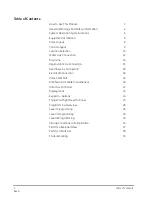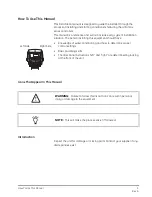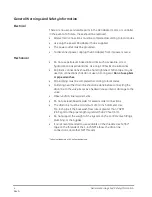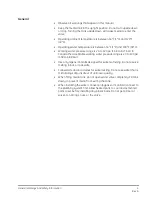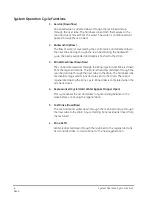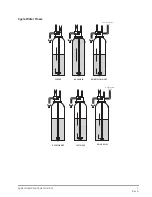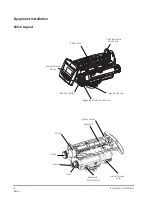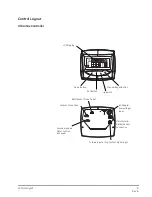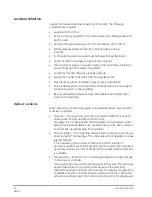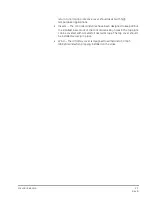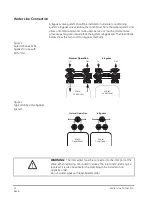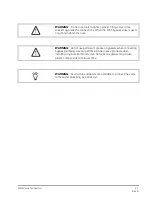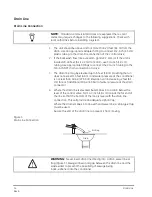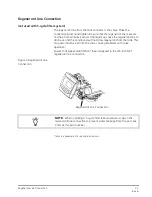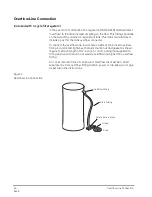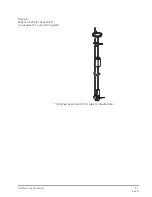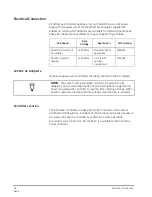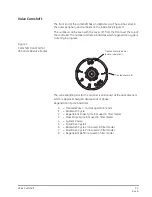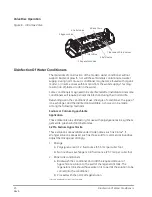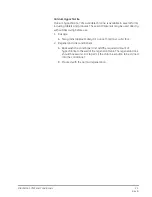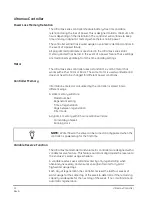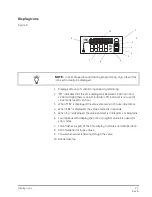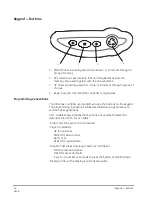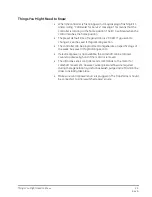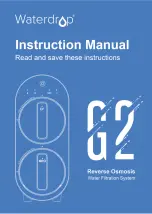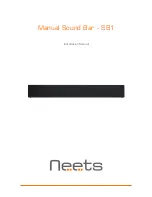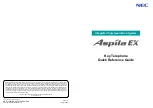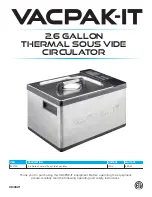
10
Location Selection
Rev A
Location Selection
Location of a water treatment system is important. The following
conditions are required:
•
Level platform or floor
•
Room to access equipment for maintenance and adding regenerant
(salt) to tank.
•
Ambient temperatures over 34
°
F (1
°
C) and below 120
°
F (49
°
C).
•
Water pressure below 120 psi (8.27 bar) and above 20 psi
(1.4 bar).
•
In Canada the water pressure must be below 100 psi (6.89 bar).
•
Constant electrical supply to operate the controller.
•
Total minimum pipe run to water heater of ten feet (three meters) to
prevent backup of hot water into system.
•
Local drain for discharge as close as possible.
•
Water line connections with shutoff or bypass valves.
•
Must meet any local and state codes for site of installation.
•
Valve is designed for minor plumbing misalignments. Do not support
weight of system on the plumbing.
•
Be sure all soldered pipes are fully cooled before attaching plastic
valve to the plumbing.
Outdoor Locations
When the water conditioning system is installed outdoors, several items
must be considered.
•
Moisture — The valve and controller are rated for NEMA 3 locations.
Falling water should not affect performance.
The system is not designed to withstand extreme humidity or water
spray from below. Examples are: constant heavy mist, near corrosive
environment, upwards spray from sprinkler.
•
Direct Sunlight — The materials used will fade or discolor over time in
direct sunlight. The integrity of the materials will not degrade to cause
system failures.
If it is necessary to locate the conditioner in direct sunlight, a
protective outdoor cover (PN 1242287) over the valve and controller is
necessary. A valve skirt (PN 1242286) that provides further protection
is available.
•
Temperature — Extreme hot or cold temperatures will cause damage
to the valve or controller.
Freezing temperatures will freeze the water in the valve. This will cause
physical damage to the internal parts as well as the plumbing.
High temperatures will affect the controller. The display may become
unreadable but the controller should continue to function. When the
temperature drops down into normal operating limits the display will


